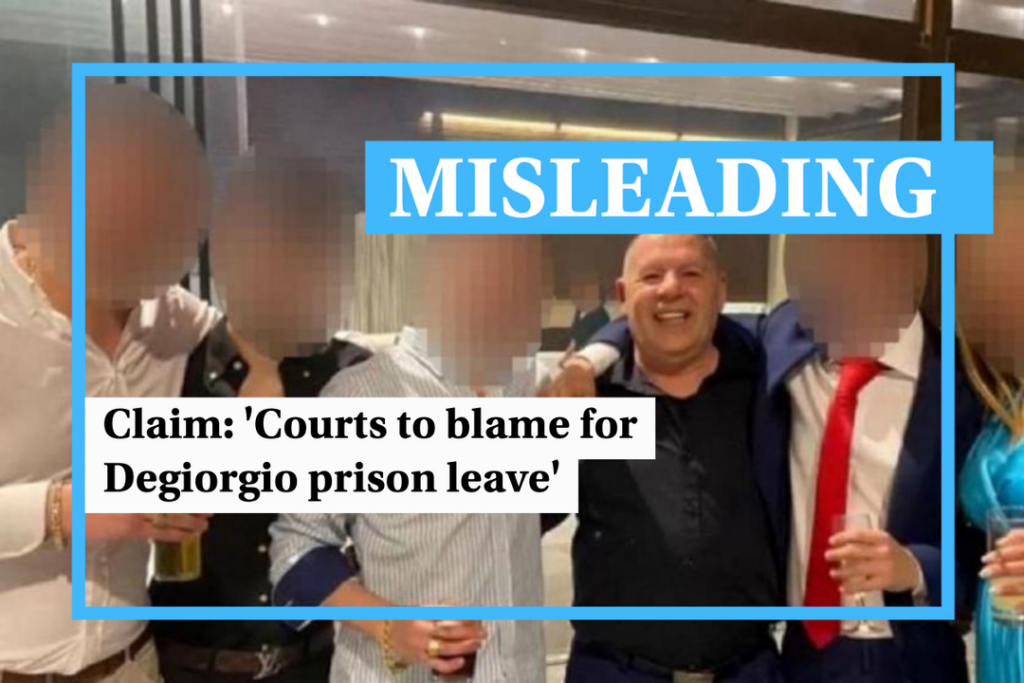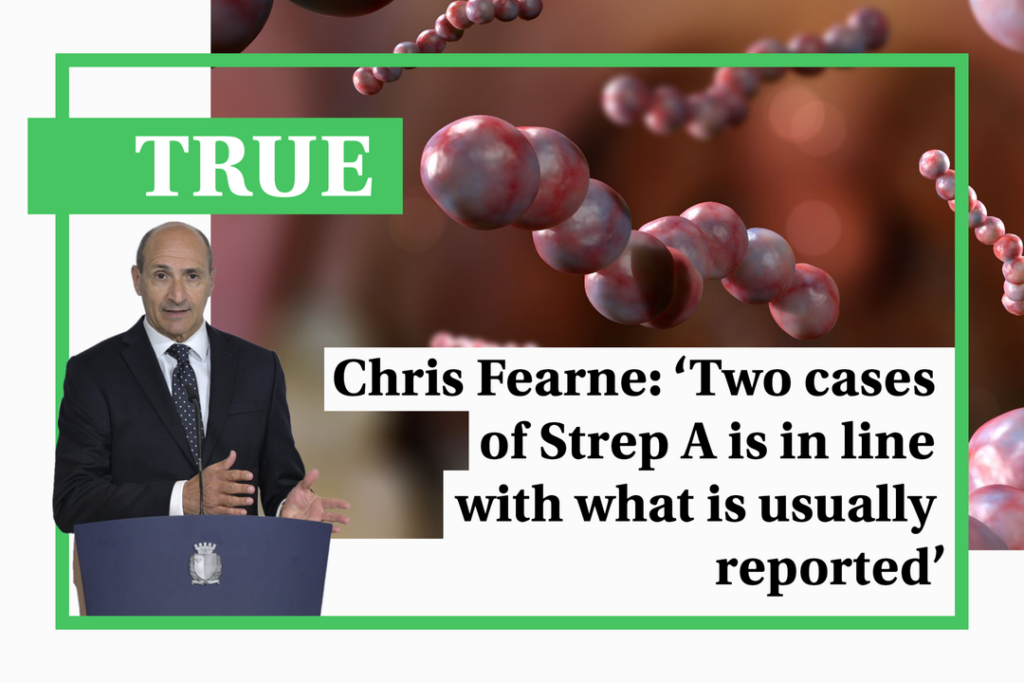Prime Minister Robert Abela on Sunday blamed the law courts for a decision to grant prison leave to one of the men convicted of killing Daphne Caruana Galizia.
George Degiorgio was photographed attending a family baptism party on Friday night. Degiorgio, together with his brother Alfred, was sentenced to 40 years imprisonment for the assassination of Caruana Galizia after admitting to the crime last October. The brothers have since filed a court appeal demanding a retrial.
Degiorgio is also facing charges of being complicit in the 2015 murder of lawyer Carmel Chircop.
The prime minister told a Labour gathering that it was the criminal court’s decision to allow Degiorgio out for his grandson’s Christening. Prison authorities argued the same point, saying that the decision was made following two court decrees and despite the objection of the Attorney General.
But lawyer and former MP Jason Azzopardi insisted it was the newly appointed director of prisons who was solely responsible for the prisoner’s release, not the law courts.
What is the prison leave procedure?
The right to prison leave is set out in the 1995 Prisons Regulations. The regulations state that “prison leave may be granted by the Director, in accordance with such general directions as may be from time to time given by the Minister”.
The regulations also set out several examples of family occasions in which prison leave may be granted, including birth, marriage, family occasions related to the child or grandchild of the prisoner, and occasions related to the prisoner’s spouse or near relative. In such cases, prison leave may be granted for up to twelve hours.
Prison leave may also be granted to attend funerals or visit relatives who are seriously ill. Baptisms are not directly mentioned within the regulations.
The regulations also state that “in the case of unconvicted prisoners any authorisation by the competent authority, if necessary, shall be requested prior to the granting of leave”.
Sources who spoke to Times of Malta clarified that prisoners who have been convicted of a crime are subject to different procedures to those who are in custody awaiting trial.
Convicted prisoners
A convict must apply for prison leave with prison authorities at least nine weeks in advance. All convicted prisoners are eligible to apply for prison leave, regardless of their crime.
Their application is then reviewed by the Prison Leave Advisory Board, a board set up by the Home Affairs Ministry to recommend whether or not prison leave should be granted.
The board includes a representative of the prison’s Care and Re-integration Unit, a unit within the prison that is responsible for prisoners’ well-being.
It considers several factors while evaluating a prison leave application, including the prisoner’s behaviour, the time already spent in prison and the nature of the crime for which the prisoner was convicted. These criteria were set out in a ministerial directive issued in 2016 by Carmelo Abela during his time as Home Affairs Minister.
The board does not receive information related to potential security threats (to either the prisoner themselves or others) that arise once prison leave is granted. This is assessed by prison authorities.
Although the board recommends whether to grant or deny prison leave, the final decision lies in the hands of the prison director, who may overrule the board’s decision.
Sources who spoke to Times of Malta confirmed that in the vast majority of cases, the director follows the board’s recommendations. Nonetheless, it is not unheard of for the director to overturn the board’s decision, often based on security concerns.
Once prison leave has been granted, the prisoner is accompanied by prison officials throughout the entire period of leave and returned to prison once the period of leave has ended.
Prisoners are strictly forbidden from drinking alcohol or having their photograph taken while on leave.
Prisoners awaiting trial
The procedure for prisoners who have not yet been convicted and are awaiting trial does not directly involve the prison authorities.
The prisoner must file an application for prison leave with the courts, rather than with prison authorities. The courts then decide whether or not to grant leave.
The prison director may choose to appeal the court’s decision, but does not have the final say over whether or not leave is granted.
Once the prisoner is on prison leave, they are escorted by police, rather than prison officials, as is the case for prisoners who have already been convicted.
Prisoners who are both convicted and awaiting trial
In cases, such as George Degiorgio’s, where a prisoner has already been convicted for one crime but is awaiting trial for another, both procedures must be followed simultaneously.
One application must be filed with prison authorities related to the crime for which they have already been convicted.
A parallel application must also be filed with the courts, requesting permission related to the crime for which they are awaiting trial.
Both applications must be accepted in order for the prison leave to be granted.
A court decree seen by Times of Malta shows that Degiorgio was granted permission by the courts to attend a family baptism and baptism party. A total of four hours of prison leave were granted.
A separate court appeal by Degiorgio to grant permission in relation to the crime for which he has already been convicted was also filed. The court abstained on this issue, as this decision is to be taken by the prison director.
Times of Malta contacted a person believed to be a member of the Prison Leave Advisory Board. They declined to comment, saying they needed to seek legal advice.
The government website describing the board is empty and does not list any names of members.
The Home Affairs Ministry and Corradino Correctional Facility did not immediately reply to questions about Degiorgio’s prison leave.
Verdict
Although Abela is correct in saying that the court granted permission for Degiorgio to be released on prison leave, this is only related to the case in which he is awaiting trial, for his involvement in the murder of Chircop.
Degiorgio also required the blessing of the prison director to be granted leave, as he has already been convicted of the assassination of Daphne Caruana Galizia.
The claim is therefore misleading as although the claim may in itself be partly or entirely true, it is presented in a manner that is not representative of the facts within a broader context.
The Times of Malta fact-checking service forms part of the Mediterranean Digital Media Observatory (MedDMO) and the European Digital Media Observatory (EDMO), an independent observatory with hubs across all 27 EU member states that is funded by the EU’s Digital Europe programme. Fact-checks are based on our code of principles.
Let us know what you would like us to fact-check, understand our ratings system or see our answers to Frequently Asked Questions about the service.


